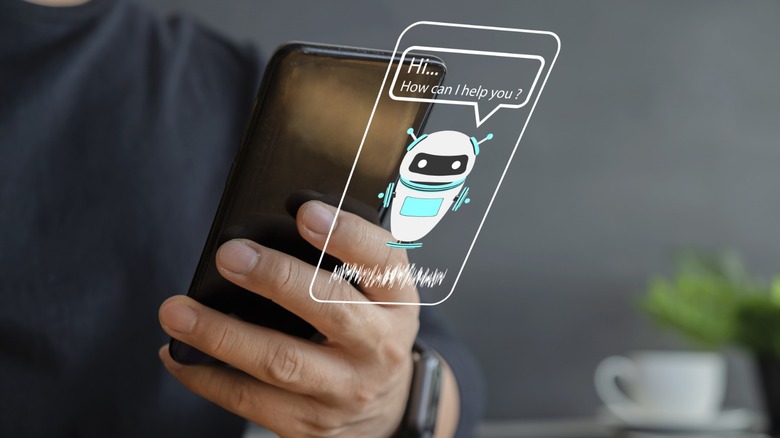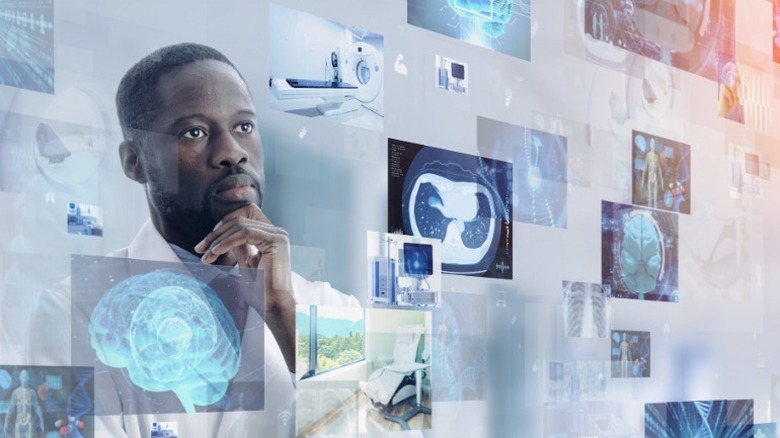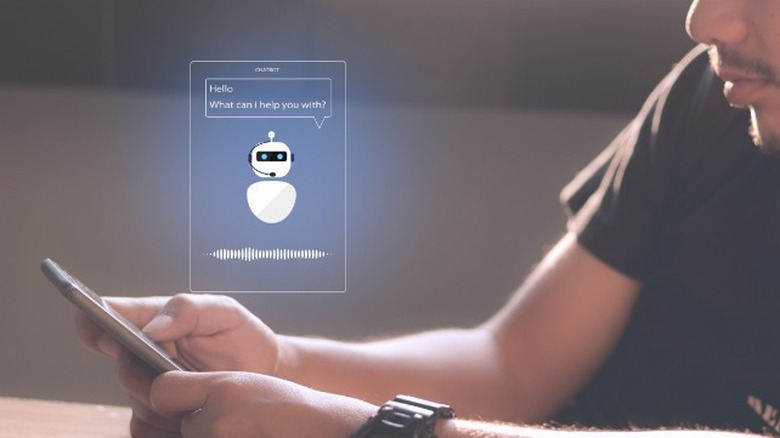The Possible Healthcare Benefits Of AI (And What It Can't Do For You)
"Mr. John Doe, Dr. AI will see you now in virtual bay number 4." These are the Orwellian dreads of many software-fearing people who worry that the use of technology in the modern world will lead to a loss of trust and integrity in the fields that the "thinking software" of artificial intelligence will enter. Correction — has entered.
Artificial intelligence is a complex field that uses advancements in computer science to create programs that can sort through enormous piles of data, find patterns, and make decisions based on the findings (per IBM). Artificial intelligence has already entered many fields that range from customer service and stock trading to healthcare and medicine.
You have probably texted with a chatbot or even spoken with a virtual assistant. But you might wonder exactly where to draw the line when it comes to integrating technology into the healthcare system. Keep reading to learn more about the potential possibilities that artificial intelligence can bring to healthcare as well as its limitations.
AI pros and cons in healthcare
According to a 2019 review published in the Future Healthcare Journal, artificial intelligence is currently being applied — by analyzing patterns — to an area known as "precision medicine," which involves predicting diseases and figuring out what potential treatments would work best for a patient's given data and current situation.
Drexel University College of Computing & Informatics notes that artificial intelligence has several other applications that could be beneficial to the field. For example, it can automate administrative tasks like appointment scheduling and even record notes during visits. All of this can save a lot of time and resources. It may also be able to relieve some of the stress of the workload that many physicians face, which could reduce burnout. But this could also come with some costs. For example, automation of the workplace could mean that many humans lose their jobs. Further, even though artificial intelligence is supposed to be accurate, it could still be wrong — or worse, fall victim to a cyberattack.
Another contended issue revolves around artificial intelligence's role in therapy.
Should you have an AI therapist?
Therapy is a rapidly growing need in the United States, but not everyone can access it (per The New Yorker). Enter artificial intelligence. Woebot, an automated mental health application created by a clinical research psychologist at Stanford, used methods from cognitive behavioral therapy to treat people via a smartphone. It can mimic a real conversation, and there's even a 2017 peer-reviewed study found in JMIR Mental Health with supporting evidence that the program can help youth ages 18-28 deal with anxiety and depression.
The biggest question for the use of artificial intelligence in therapy does not revolve around its potential to automate processes, but rather if artificial intelligence can provide the kind of trusting and empathetic human interaction that therapy is based on. Some health experts argue that the chatbot-therapy revolution is not able to imitate — much less be on par with — human emotions (via NPR). Without this emotional connection, some users may struggle with being fully honest and transparent with artificial intelligence, which could affect the quality of the therapy.
Technology progresses so fast that we are often left to contemplate the nuts and bolts of the outcomes after it is already adopted. But are we willing to trust our collective mental health to a piece of software written by a psychologist, rather than talking to an actual one? And yet, many people like talking to a programmed therapist. Artificial intelligence is the future of healthcare — and the future is now.



